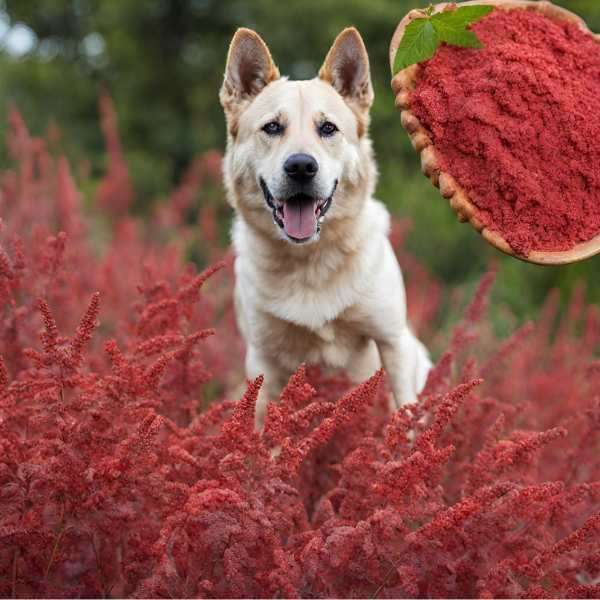Yes, sumac berries are generally safe for dogs to eat in moderation, consuming large amounts can lead to gastrointestinal upset. However, it’s crucial to avoid sumac spice, especially in large quantities, as it may cause digestive issues and discomfort for dogs.
It’s recommended to monitor your dog for any adverse reactions if they ingest sumac and consult a veterinarian if you have concerns. As with introducing sumac to your dog’s diet, moderation and observation are key to ensuring their safety.
Benefits of Sumac for Dogs
Some potential benefits for dogs may include:

Antioxidant Properties: Sumac contains antioxidants that help to neutralize the harmful radicals in your dog’s body. They support overall health and potentially reduce the risk of chronic diseases.
Flavor Enhancement: If you add a small amount of sumac into your dog;’s diet, it can make it very tasty and give it a different flavor.
Potential Anti-Inflammatory Effects: Some studies suggest that sumac’s flavonoids may have anti-inflammatory properties, which could benefit dogs with inflammatory conditions.
Rich in Nutrients: Sumac contains various nutrients and may contribute to a well-rounded diet for your dog. However, it’s essential to use Sumac in moderation and as a supplement to your dog’s regular diet. You can also talk to the vet before adding it to the diet.
Health Risks of Feeding Sumac to Dogs

Guilt by Association: Sumac, despite being non-toxic, is often associated with its toxic cousin, Poison Sumac, leading to misconceptions about its safety.
Skin Irritation: While sumac itself isn’t toxic, it can produce compounds that cause rashes and blisters in pets upon contact.
Rare Reactions: Severe reactions to sumac, including rashes, are rare in dogs, but ingestion of urushiol from sumac plants can lead to more serious consequences.
How to Safely Introduce Sumac to Your Dog?
Start with Small Quantities: Introduce Sumac gradually in small amounts to monitor your dog’s reaction and to check for any allergies or adverse effects.
Monitor for Reactions: Watch for any signs of allergic reactions or digestive issues after introducing sumac to your dog’s diet. If you notice any adverse reactions, discontinue use immediately and consult your vet.
Ensure Quality: Use high-quality, fresh sumac sourced from reputable sources to minimize the risk of contamination or adverse effects.
Incorporate into Meals: Mix small amounts of sumac into your dog’s regular meals, such as sprinkling it over their food, to make it easier for them to consume.
Observe Regularly: Continue to monitor your dog’s health and well-being after introducing sumac into their diet to ensure they tolerate it well over time.
